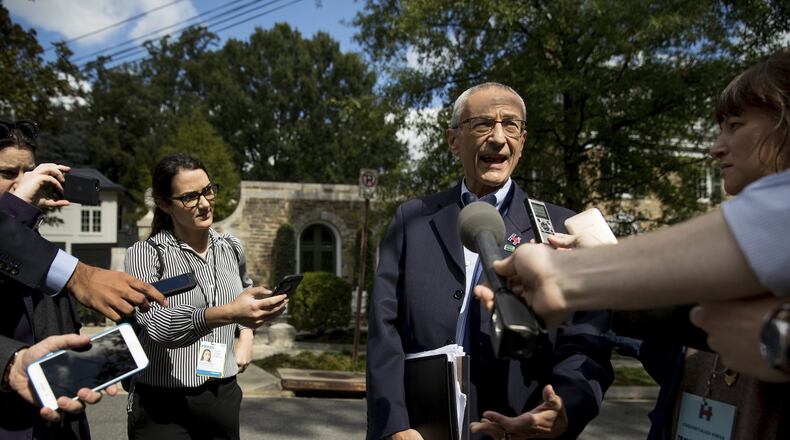“You can put in firewalls. You can put in antivirus. You can put in spam filters — whatever you want — but at the end of the day it’s the nice person who doesn’t quite pay enough attention and clicks a link,” said David Salisbury, professor of information systems at University of Dayton. “Mr. Podesta’s situation is a cautionary tale.”
Related:
Other notables to have email accounts compromised include CIA Director John Brennan, Director of National Intelligence James Clapper, former Secretary of State Colin Powell, and 2012 Republican presidential candidate Mitt Romney.
Phishing attacks reached an all-time high during the second quarter of this year, according to the Anti-Phishing Working Group (APWG), an international coalition of industry, government and law enforcement keeping tabs on cybercrime.
Many Americans have learned to automatically delete bulk spam emails purporting to come from a Nigerian prince wanting to share riches, or from a long-lost relative traveling overseas who lost a passport and needs money wired. But those “phishing” the internet today use increasingly sophisticated nets — especially those attempting to infiltrate large organizations.
While Donald Trump has seized on the emails to mount a political attack on Clinton, Florida Republican Sen. Marco Rubio told ABC News that no political party should cheer the prospect of foreign state-sponsored hackers attempting to obstruct the U.S. election.
“As our intelligence agencies have said, these leaks are an effort by a foreign government to interfere with our electoral process, and I will not indulge it,” Rubio said. “Further, I want to warn my fellow Republicans who may want to capitalize politically on these leaks: Today it is the Democrats. Tomorrow it could be us.”
About the Author

